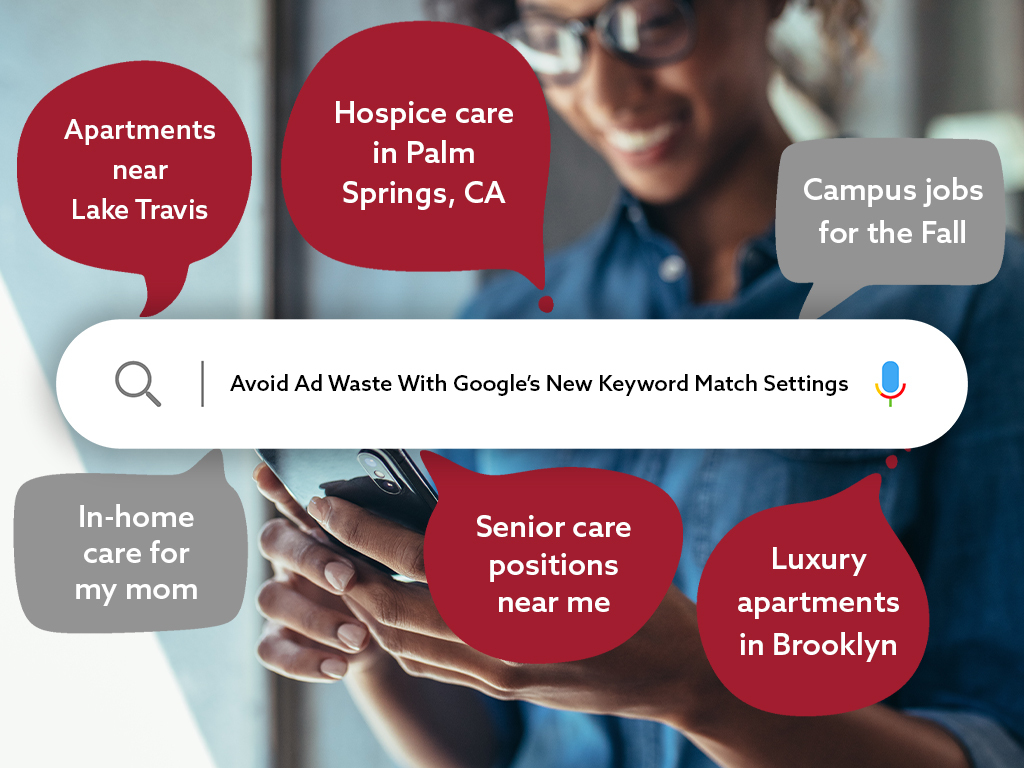Protect Your PPC Budget: Avoid Ad Waste With Google’s New Keyword Match Settings
- 17 July 2024

In the dynamic world of digital advertising, keeping up with platform changes is a constant battle. Google’s recent changes to keyword match types have introduced new challenges for advertisers, resulting in wasted ad spending on less relevant keywords. At Conversion Logix, we’ve developed sophisticated solutions to combat these changes and ensure our clients’ advertising dollars are spent wisely.
A Brief History of Keyword Match Types
Keyword match types have long been a fundamental tool in digital advertising. Advertisers use them to control which searches trigger their ads, aiming for relevance and efficiency. Initially, Google offered three main match types:
- Exact Match: Ads appear only for searches that match the keyword exactly.
- Phrase Match: Ads show for searches that include the keyword phrase in the exact order.
- Broad Match: Ads trigger for searches that are related to the keyword, capturing a wider audience.
These match types allowed advertisers to fine-tune their campaigns, ensuring ads were shown to the right audience and minimizing wasted spend.
Google’s Controversial Changes
Recently, Google made controversial changes to its match type definitions, particularly with the close variant matching. Close variants now include not just misspellings and plural forms but also synonyms, related searches, and other variations that stretch the definition of a “close match.” This shift means that even with exact and phrase match settings, ads are often triggered by searches that are only loosely related to the targeted keywords.
For example, a campaign targeting “senior living communities” might now also capture searches for “retirement home jobs” or “senior discount groceries.” This broadening of match types can lead to a significant increase in irrelevant clicks, driving up costs without delivering relevant traffic.
Our Solution
At Conversion Logix, we recognized the implications of Google’s changes and took proactive steps to protect our clients’ ad spend. Here’s how we tackled the problem:
- Advanced AI Analysis: We leverage artificial intelligence to sift through vast datasets of keyword queries. Our AI identifies patterns and flags keywords that attract irrelevant traffic.
- Robust Negative Keyword Lists: Using insights from our AI analysis, we compile comprehensive negative keyword lists. These lists prevent ads from being shown for unrelated searches, ensuring that ad spend is focused on genuinely relevant queries.
- Continuous Monitoring and Adjustment: We continuously monitor search data and adjust our negative keyword lists in real time to adapt to new trends and changes in Google’s algorithms.
- Human Oversight: While AI provides powerful insights, human expertise ensures quality. Our team of experts reviews and refines AI-generated suggestions to maintain the highest level of accuracy and relevance.
How Our Clients Benefit
By addressing Google’s changes head-on, we help our clients achieve the following:
- Maximized ROI: By eliminating irrelevant clicks, we ensure that every ad dollar contributes to potential leads.
- Improved Ad Relevance: Our refined targeting increases the likelihood of reaching the right audience, leading to higher conversion rates.
- Enhanced Efficiency: With precise keyword management, our clients’ campaigns run more efficiently, reducing wasted spend.
Moving Forward With Confidence
At Conversion Logix, we are committed to staying ahead of industry changes and protecting our clients’ interests. Google’s recent match type changes are a reminder of the importance of proactive campaign management. By combining advanced AI technology with expert human oversight, we provide our clients with the tools they need to navigate these challenges and succeed. We’re not just reacting to changes; we’re pioneering solutions, ensuring our clients can move forward with confidence in an ever-changing digital landscape.
Schedule a Call